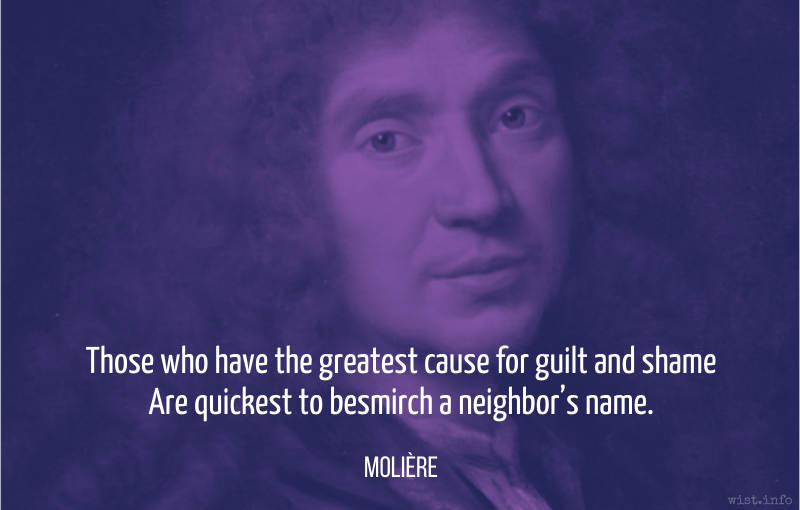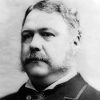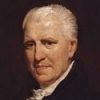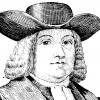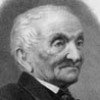The objection to a scandal-monger is not that she tells of racy doings, but that she pretends to be indignant about them.
H. L. Mencken (1880-1956) American writer and journalist [Henry Lewis Mencken]
A Little Book in C Major, ch. 5, § 29 (1916)
(Source)
Quotations about:
gossip
Note not all quotations have been tagged, so Search may find additional quotes on this topic.
For what do we live, but to make sport for our neighbors and laugh at them in our turn?
Rumor, quicksilver afoot
and swift on the wing, a monster, horrific, huge
and under every feather on her body — what a marvel —
an eye that never sleeps and as many tongues as eyes
and as many raucous mouths and ears pricked up for news.
By night she flies aloft, between the earth and sky,
whirring across the dark, never closing her lids
in soothing sleep. By day she keeps her watch,
crouched on a peaked roof or palace turret,
terrorizing the great cities, clinging as fast
to her twisted lies as she clings to words of truth.[… [P]edibus celerem et pernicibus alis,
monstrum horrendum, ingens, cui, quot sunt corpore plumae
tot vigiles oculi subter, mirabile dictu,
tot linguae, totidem ora sonant, tot subrigit aures.
Nocte volat caeli medio terraeque per umbram,
stridens, nec dulci declinat lumina somno;
luce sedet custos aut summi culmine tecti,
turribus aut altis, et magnas territat urbes;
tam ficti pravique tenax, quam nuntia veri.]Virgil (70-19 BC) Roman poet [b. Publius Vergilius Maro; also Vergil]
The Aeneid [Ænē̆is], Book 4, l. 180ff (4.180-188) (29-19 BC) [tr. Fagles (2006), l. 226ff]
(Source)
The personification of "Rumor" (Fame, or Fama).
(Source (Latin)). Alternate translations:
Swift footed, quick she flyes,
A huge fowle Monster, in each feather lies
A watching eye conceal'd, (and strange) she bears
As many tongues, loud mouths, and list'ning ears.
A watch by day, on battlements she lights,
Or lofty towers, and mighty towns affrights.
Falshoods, and lyes, of as the truth she tells,
And Nations then with various rumours swells.
Things feign'd and reall, glad alike she sung.
[tr. Ogilby (1649)]
Swift is her walk, more swift her winged haste:
A monstrous phantom, horrible and vast.
As many plumes as raise her lofty flight,
So many piercing eyes enlarge her sight;
Millions of opening mouths to Fame belong,
And ev'ry mouth is furnish'd with a tongue,
And round with list'ning ears the flying plague is hung.
She fills the peaceful universe with cries;
No slumbers ever close her wakeful eyes;
By day, from lofty tow'rs her head she shews,
And spreads thro' trembling crowds disastrous news;
With court informers haunts, and royal spies;
Things done relates, not done she feigns, and mingles truth with lies.
Talk is her business, and her chief delight
To tell of prodigies and cause affright.
[tr. Dryden (1697)]
Swift to move with feet and persevering wings: a monster hideous, immense; who (wondrous to relate!) for as many plumes as are in her body, numbers so many wakeful eyes beneath, so many tongues, so many babblingmouths, pricks up so many listening ears. By night, through the mid regions of the sky, and through the shades of earth, she flies buzzing, nor inclines her eyes to balmy rest. Watchful by day, she perches either on some high house-top, or on lofty turrets, and fills mighty cities with dismay; as obstinately bent on falsehood and iniquity as on reporting truth.
[tr. Davidson/Buckley (1854)]
... With feet and rapid wings for flight.
Huge, terrible, gigantic Fame!
For every plume that clothes her frame
An eye beneath the feather peeps,
A tongue rings loud, an ear upleaps.
Hurtling 'twixt earth and heaven she flies
By night, nor bows to sleep her eyes:
Perched on a roof or tower by day
She fills great cities with dismay;
How oft soe'er the truth she tell,
She loves a falsehood all too well.
[tr. Conington (1866)]
With nimble feet, and swift persistent wings,
A monster huge and terrible is she.
As many feathers as her body bears,
So many watchful eyes beneath them lurk,
So many tongues and mouths, and ears erect.
By night 'twixt heaven and earth she flies, through shades,
With rushing wings, nor shuts her eyes in sleep.
By day she watches from the roofs or towers;
And the great cities fills with haunting fears;
As prone to crime and falsehood as to truth ...
[tr. Cranch (1872), l. 236ff]
Fleet-footed and swift of wing, ominous, awful, vast; for every feather on her body is a waking eye beneath, wonderful to tell, and a tongue, and as many loud lips and straining ears. By night she flits between sky and land, shrilling through the dusk, and droops not her lids in sweet slumber; in daylight she sits on guard upon tall towers or the ridge of the house-roof, and makes great cities afraid; obstinate in perverseness and forgery no less than messenger of truth.
[tr. Mackail (1885)]
Swift are her wings to cleave the air, swift-foot she treads the earth:
A monster dread and huge, on whom so many as there lie
The feathers, under each there lurks, O strange! a watchful eye;
And there wag tongues, and babble mouths, and hearkening ears upstand
As many: all a-dusk by night she flies 'twixt sky and land
Loud clattering, never shutting eye in rest of slumber sweet.
By day she keepeth watch high-set on houses of the street,
Or on the towers aloft she sits for mighty cities' fear!
And lies and ill she loves no less than sooth which she must bear.
[tr. Morris (1900)]
Swift-winged, swift-footed, of enormous girth,
Huge, horrible, deformed, a giantess from birth.
As many feathers as her form surround,
Strange sight! peep forth so many watchful eyes,
So many mouths and tattling tongues resound,
So many ears among the plumes uprise.
By night with shrieks 'twixt heaven and earth she flies,
Nor suffers sleep her eyelids to subdue;
By day, the terror of great towns, she spies
From towers and housetops, perched aloft in view,
Fond of the false and foul, yet herald of the true.
[tr. Taylor (1907), st. 23-24, l. 206ff]
Feet swift to run and pinions like the wind
the dreadful monster wears; her carcase huge
is feathered, and at root of every plume
a peering eye abides; and, strange to tell,
an equal number of vociferous tongues,
foul, whispering lips, and ears, that catch at all.
At night she spreads midway 'twixt earth and heaven
her pinions in the darkness, hissing loud,
nor e'er to happy slumber gives her eyes:
but with the morn she takes her watchful throne
high on the housetops or on lofty towers,
to terrify the nations. She can cling
to vile invention and malignant wrong,
or mingle with her word some tidings true.
[tr. Williams (1910)]
Swift of foot and fleet of wing, a monster awful and huge, who for the many feathers in her body has as many watchful eyes below -- wondrous to tell -- as many tongues, as many sounding mouths, as many pricked-up ears. By night, midway between heaven and earth, she flies through the gloom, screeching, nor droops her eyes in sweet sleep; by day she sits on guard on high roof-top or lofty turrets, and affrights great cities, clinging to the false and wrong, yet heralding truth.
[tr. Fairclough (1916)]
Swift of foot,
Deadly of wing, a huge and terrible monster,
With an eye below each feather in her body,
A tongue, a mouth, for every eye, and ears
Double that number; in the night she flies
Above the earth, below the sky, in shadow
Noisy and shrill; her eyes are never closed
In slumber; and by day she perches, watching
From tower or battlement, frightening great cities.
She heralds truth, and clings to lies and falsehood,
[tr. Humphries (1951)]
A swift-footed creature, a winged angel of ruin,
A terrible, grotesque monster, each feather upon whose body --
Incredible though it sounds -- has a sleepless eye beneath it,
And for every eye she has also a tongue, a voice and a pricked ear.
At night she flits midway between earth and sky, through the gloom
Screeching, and never closes her eyelids in sweet slumber:
By day she is perched like a look-out either upon a roof-top
Or some high turret; so she terrorises whole cities,
Loud-speaker of truth, hoarder of mischievous falsehood, equally.
[tr. Day Lewis (1952)]
Fast-footed
and lithe of wing, she is a terrifying
enormous monster with as many feathers
as she has sleepless eyes beneath each feather
(amazingly), as many sounding tongues
and mouths, and raises up as many ears.
Between the earth and skies she flies by night,
screeching across the darkness, and she never
closes her eyes in gentle sleep. By day
She sits as sentinel on some steep roof
or on high towers, frightening vast cities;
for she holds fast to falsehood and distortion
as often as to messages of truth.
[tr. Mandelbaum (1971), l. 237ff]
... [G]iving her speed on foot and on the wing:
Monstrous, deformed, titanic. Pinioned, with
An eye beneath for every body feather,
And, strange to say, as many tongues and buzzing
Mouths as eyes, as many pricked-up ears,
By night she flies between the earth and heaven
Shrieking through darkness, and she never turns
Her eye-lids down to sleep. by day she broods,
On the alert, on rooftops or on towers,
Bringing great cities fear, harping on lies
And slander evenhandedly with truth.
[tr. Fitzgerald (1981), l. 248ff]
Rumour is quick of foot and swift on the wing, a huge and terrible monster, and under every feather of her body, strange to tell, there lies an eye that never sleeps, a mouth and a tongue that are never silent, and an ear always pricked. by night she flies between earth and sky, squawking through the darkness, and never lowers her eyelids in sweet sleep. By day she keeps watch perched on the tops of gables or on high towers and causes fear in great cities, holding fast to her lies and distortions as often as she tells the truth.
[tr. West (1990)]
A monster, vast and terrible, fleet-winged
and swift-footed, sister to Coeus and Enceladus,
who for every feather on her body has as many
watchful eyes below (marvelous to tell), as many
tongues speaking, as many listening ears.
She flies, screeching, by night through the shadows
between earth and sky, never closing her eyelids
in sweet sleep: by day she sits on guard on tall roof-tops
or high towers, and scares great cities, as tenacious
of lies and evil, as she is messenger of truth.
[tr. Kline (2002)]
Fast on her feet, her beating wings a blur,
She is a dread, looming monster. Under every feather
On her body she has -- strange to say -- a watchful eye,
A tongue, a shouting mouth, and pricked-up ears.
By night she wheels through the dark skies, screeching,
And never closes her shining eyes in sleep.
By day she perches on rooftops or towers,
Watching, and she throws whole cities into panic,
As much a hardened liar as a herald of truth.
[tr. Lombardo (2005), l. 205ff]
Her feet are swift and her wings are hateful,
A dread creation whose huge body bristles with feathers.
And beneath them all are watchful eyes, chilling to describe
And as many tongues within whispering mouths and between attentive ears.
At night she flights mid-sky and over the shadowed earth,
Hissing, refusing to rest her eyes in sweet sleep.
At day she stands guard at the highest roof-peak
Or on looming towers as she brings the cities terror.
She sticks at times to base lies and other times to truth.
[tr. @sentantiq (2015)]
She's fast of foot and fleet of wing, a huge horrific monster.
Under all her feathers lurk (amazingly)
as many watching eyes and tongues,
as many talking mouths and pricked-up ears.
She flies by night, between the sky and earth, screeching through the dark.
Her eyes don't close in welcome sleep.
By day she perches as a lookout on high roofs
or towers and alarms great cities.
She's as fond of fiction and perversity as truth.
[tr. Bartsch (2021)]
Rumor! What evil can surpass her speed?
In movement she grows mighty, and achieves
strength and dominion as she swifter flies.
small first, because afraid, she soon exalts
her stature skyward, stalking through the lands
and mantling in the clouds her baleful brow.[Fama, malum qua non aliud velocius ullum;
Mobilitate viget, virisque adquirit eundo;
Parva metu primo; mox sese attollit in auras,
Ingrediturque solo, et caput inter nubila condit.]Virgil (70-19 BC) Roman poet [b. Publius Vergilius Maro; also Vergil]
The Aeneid [Ænē̆is], Book 4, l. 174ff (4.174-177) (29-19 BC) [tr. Williams (1910)]
(Source)
(Source (Latin)). Alternate translations:
Fame is an evill, none more swift, which gaines
By motion strength, in flying force obtaines,
Small first by feare, to heaven advanc'd now shrowds,
Stalking on earth, her head amongst the clouds.
[tr. Ogilby (1649)]
Fame, the great ill, from small beginnings grows:
Swift from the first; and ev'ry moment brings
New vigor to her flights, new pinions to her wings.
Soon grows the pigmy to gigantic size;
Her feet on earth, her forehead in the skies.
[tr. Dryden (1697)]
Fame, than whom no pest is more swift, by exerting her agility grows more active, and acquires strength on her way : small at first through fear; soon she shoots up into the skies, and stalks along the ground, while she hides her head among the clouds.
[tr. Davidson/Buckley (1854)]
Fame than who never plague that runs
Its way more swiftly wins:
Her very motion lends her power:
She flies and waxes every hour.
At first she shrinks, and cowers for dread:
Ere long she soars on high:
Upon the ground she plants her tread,
Her forehead in the sky.
[tr. Conington (1866)]
Rumor, than whom no evil is more swift.
She grows by motion, gathers strength by flight.
Small at the first, through fear, soon to the skies
She lifts herself. She walks upon the ground.
And hides her head in clouds.
[tr. Cranch (1872)]
Rumour, than whom none other is more swift to mischief; she thrives on restlessness and gains strength by going: at first small and timorous; soon she lifts herself on high and paces the ground with head hidden among the clouds.
[tr. Mackail (1885)]
Rumour, of whom nought swifter is of any evil thing:
She gathereth strength by going on, and bloometh shifting oft!
A little thing, afraid at first, she springeth soon aloft;
Her feet are on the worldly soil, her head the clouds o'erlay.
[tr. Morris (1900)]
Fame, far the swiftest of all mischiefs bred;
Speed gives her force; she strengthens as she flies.
Small first through fear, she lifts a loftier head,
Her forehead in the clouds, on earth her tread.
[tr. Taylor (1907), st. 23, ll. 200-204]
Rumour of all evils the most swift. Speed lends her strength, and she wins vigour as she goes; small at first through fear, soon she mounts up to heaven, and walks the ground with head hidden in the clouds.
[tr. Fairclough (1916)]
Rumor
Than whom no other evil was ever swifter.
She thrives on motion and her own momentum;
Tiny at first in fear, she swells, colossal
In no time, walks on earth, but her head is hidden
Among the clouds.
[tr. Humphries (1951)]
Rumour, the swiftest traveller of all the ills on earth,
Thriving on movement, gathering strength as it goes; at the start
A small and cowardly thing, it soon puffs itself up,
And walking upon the ground, buries its head in the cloud-base.
[tr. Day Lewis (1952)]
Rumor,
whose life is speed, whose going gives her force.
Timid and small at first, she soon lifts up
her body in the air. She stalks the ground;
her head is hidden in the clouds.
[tr. Mandelbaum (1971), l. 230ff]
Rumor
Thrives on motion, stronger for the running,
Lowly at first through fear, then rearing high,
She treads the land and hides her head in cloud.
[tr. Fitzgerald (1981), l. 241ff]
Of all the ills there are, Rumour is the swiftest. She thrives on movement and gathers strength as she goes. From small and timorous beginnings she soon lifts herself up into the air, her feet still on the ground and her head hidden in the clouds.
[tr. West (1990)]
Rumour, compared with whom no other is as swift.
She flourishes by speed, and gains strength as she goes:
first limited by fear, she soon reaches into the sky,
walks on the ground, and hides her head in the clouds.
[tr. Kline (2002)]
Rumor, the swiftest of evils. She thrives on speed
And gains power as she goes. Small and timid at first,
She grows quickly, and though her feet touch the ground
Her head is hidden in the clouds.
[tr. Lombardo (2005), l. 199ff]
Rumor, swiftest of all the evils in the world.
She thrives on speed, stronger for every stride,
slight with fear at first, soon soaring into the air
she treads the ground and hides her head in the clouds.
[tr. Fagles (2006), l. 220ff]
Rumor, no other evil can move more quickly:
She grows with speed and acquires strength in motion,
At first, she is small from fear, but soon she raises herself to the sky
and walks onto the land hiding her head among the clouds.
[tr. @sentantiq (2015)]
Rumor, swiftest of all evil;
she thrives on speed and gains strength as she goes.
At first she's small and scared, but soon she rears to the skies,
her feet still on the ground, her head hidden in the clouds.
[tr. Bartsch (2021)]
Another good thing about gossip is that it is within everybody’s reach,
And it is much more interesting than any other form of speech,
Because suppose you eschew gossip and just say
Mr. Smith is in love with his wife.
Why that disposes the Smiths as a topic of conversation for the rest of their life,
But suppose you say with a smile, that poor little Mrs. Smith thinks her husband is in love with her, he must be very clever,
Why then you can enjoyably talk about the Smiths forever.
Ogden Nash (1902-1971) American poet
“I Have It On Good Authority,” New York American (3 Sep 1935)
(Source)
DORINE: Those who have the greatest cause for guilt and shame
Are quickest to besmirch a neighbor’s name.[Ceux de qui la conduite offre le plus à rire
Sont toujours sur autrui les premiers à médire.]Molière (1622-1673) French playwright, actor [stage name for Jean-Baptiste Poquelin]
Tartuffe, Act 1, sc. 1 (1664) [tr. Wilbur (1963)]
(Source)
Alt. trans.:Original French.
- "They whose own conduct is the most ridiculous are always the first to slander others." [tr. Van Laun (1876)]
- "Since they are always talked about, / They're sniffing other scandal out." [tr. Bolt (2002)]
- "Those whose conduct gives room for talk / Are always the first to attack their neighbors." [Bartlett's]
There is no rampart that will hold out against malice.
[Contre la médisance il n’est point de rempart.]
Molière (1622-1673) French playwright, actor [stage name for Jean-Baptiste Poquelin]
Tartuffe, Act 1, sc. 1, l. 99 (1664)
(Source)
Alt. trans.: "Against backbiting there is no bulwark."
Gossip isn’t scandal and it’s not merely malicious. It’s chatter about the human race by lovers of the same. Gossip is the tool of the poet, the shop-talk of the scientist, and the consolation of the housewife, wit, tycoon and intellectual. It begins in the nursery and ends when speech is past.
Phyllis McGinley (1905-1978) American author, poet
“A New Year and No Resolutions,” Woman’s Home Companion (Jan 1957)
(Source)
Madam, I may be President of the United States, but my private life is nobody’s damn business.
Chester Alan Arthur (1829-1886) American attorney, politician, US President (1881-85)
(Attributed)
In various sources, this was a reply made to a temperance reformer about his drinking alcohol, against journalists writing of his late wife and children, or to a gossip commenting on rumors he was seeing other women.
The absent are like children; they are helpless to defend themselves.
Secrets with girls, like loaded guns with boys,
Are never valued till they make a noise.George Crabbe (1754-1832) English poet, writer, surgeon, clergyman
Tales of the Hall, “The Maid’s Story” (1819)
(Source)
Thy friend has a friend, and thy friend’s friend has a friend; be discreet.
The Talmud (AD 200-500) Collection of Jewish rabbinical writings
Babylonian Talmud, Baba Bathra 28b
(Source)
Noted as a common saying. The summary "be discreet" does not appear in the actual Talmud translations I found, but seems to be an explanation from early Christian reviews of the Talmud for when the verse is given as a stand-alone proverb.
The tongue is not steele, yet it cuts.
George Herbert (1593-1633) Welsh priest, orator, poet.
Jacula Prudentum, or Outlandish Proverbs, Sentences, &c. (compiler), # 838 (1640 ed.)
(Source)
Calumny is a monstrous vice: for, where parties indulge in it, there are always two that are actively engaged in doing wrong, and one who is subject to injury. The calumniator inflicts wrong by slandering the absent; he who gives credit to the calumny, before he has investigated the truth, is equally implicated. The person traduced is doubly injured — first by him who propagates, and secondly by him who credits the calumny.
Like the tiger, that seldom desists from pursuing man after having once preyed upon human flesh, the reader, who has once gratified his appetite with calumny, makes ever after, the most agreeable feast upon murdered reputation.
What Paul says about Peter tells us more about Paul than it does about Peter.
Baruch Spinoza (1632-1677) Dutch philosopher
(Attributed)
(Source)
Quoted by Erich Fromm, Psychoanalysis and Religion, 3 (1950).
Every man hath in his own life sins enough, in his own mind trouble enough, in his own fortune evils enough, and in performance of his offices failings more than enough, to entertain his own inquiry; so that curiosity after the affairs of others cannot be without envy, and an evil mind. What is it to me, if my neighbour’s grandfather were a Syrian, or his grandmother illegitimate; or that another is indebted five thousand pounds, or whether his wife be expensive?
Were there no hearers, there would be no backbiters.
George Herbert (1593-1633) Welsh priest, orator, poet.
Jacula Prudentum, or Outlandish Proverbs, Sentences, &c. (compiler), # 69 (1640 ed.)
(Source)
Let us believe neither half of the good people tell us of ourselves, nor half the evil they say of others.
“My dear young lady,” said the Professor, suddenly looking up with a very sharp expression at both of them, “there is one plan which no one has yet suggested and which is well worth trying.”
“What’s that?” said Susan.
“We might all try minding our own business,” said he. And that was the end of that conversation.
Every whisper of infamy is industriously circulated, every hint of suspicion eagerly improved, and every failure of conduct joyfully published by those whose interest it is that the eye and voice of the public should be employed on any rather than themselves.
Samuel Johnson (1709-1784) English writer, lexicographer, critic
The Rambler, #76 (8 Dec 1750)
(Source)
A gossip is one who talks to you about others; a bore is one who talks to you about himself; and a brilliant conversationalist is one who talks to you about yourself.
Lisa Kirk (1925-1990) American actress and singer
Quoted in the Cholly Knickerbocker society column, New York Journal American (9 Mar 1954)
(Source)
In that Heart paper at that time, Cholly Knickerbocker was the pen name for Igor Cassini.
My wife should be as much free from suspicion of a crime as she is from a crime itself.
[Meos tam suspicione quam crimine iudico carere oportere.]
Julius Caesar (100-44 BC) Roman general and statesman [Gaius Julius Caesar]
In Suetonius, Life of Caesar
Popularly, "Caesar’s wife must be above reproach" or "beyond reproach."
Caesar was called to be a witness against Clodius, who was charge with having defiled sacred rites and having an affair with Pompeia, Caesar's wife. Caesar said he had investigated and found out nothing to prove the Pompeia's fidelity. When asked why, then, he had divorced her, he gave this answer.
Alt. trans.: "I judge it necessary for my kin to be as free from suspicion as from the charge of wrongdoing."
Alt. trans.: "I wished my wife to be not so much as suspected." [in Plutarch, “Caesar,” Parallel Lives [tr. Dryden (1693)]].
HAMLET: Be thou as chaste as ice, as pure as snow, thou shalt not escape calumny.
William Shakespeare (1564-1616) English dramatist and poet
Hamlet, Act 3, sc. 1, l. 147ff (3.1.147-148) (c. 1600)
(Source)
The stroke of the whip maketh marks in the flesh: but the stroke of the tongue breaketh the bones. Many have fallen by the edge of the sword: but not so many as have fallen by the tongue.
The Bible (The Old Testament) (14th - 2nd C BC) Judeo-Christian sacred scripture [Tanakh, Hebrew Bible], incl. the Apocrypha (Deuterocanonicals)
Sirach (Ecclesiasticus) 28:17-18 [KJV (1611)]
(Source)
Alternate translations:
The stroke of a whip maketh a blue mark: but the stroke of the tongue will break the bones. Many have fallen by the edge of the sword, but not so many as have perished by their own tongue.
[DRA (1899); 28:21-22]
A stroke of the whip raises a weal, but a stroke of the tongue breaks bones. Many have fallen by the edge of the sword, but many more have fallen by the tongue.
[JB (1966)]
A whip can raise a welt, but a vicious tongue can break bones. More people have died as a result of loose talk than were ever killed by swords.
[GNT (1976)]
The blow of a whip raises a welt, but a blow of the tongue crushes the bones. Many have fallen by the edge of the sword, but not as many as have fallen because of the tongue.
[NRSV (1989 ed.)]
Keep close behind me. Let them say their say.
Stand straight, a mighty tower unwavering,
its height unshaken by such breaths of wind.[Vien dietro a me, e lascia dir le genti:
sta come torre ferma, che non crolla
già mai la cima per soffiar di venti.]Dante Alighieri (1265-1321) Italian poet
The Divine Comedy [Divina Commedia], Book 2 “Purgatorio,” Canto 5, l. 13ff (5.13-15) [Virgil] (1314) [tr. Kirkpatrick (2007)]
(Source)
Virgil scolding Dante for slowing down when other spirits are pointing and murmuring about him having a shadow, unlike them.
(Source (Italian)). Alternate translations:
Can murmurs move you? Let them whisper on,
And bid your Reason firmly keep its throne,
and o'er the fortress of the mind preside.
[tr. Boyd (1802), st. 2]
Come after me, and to their babblings leave
The crowd. Be as a tower, that, firmly set,
Shakes not its top for any blast that blows!
[tr. Cary (1814)]
Come thou behind me, let the people talk;
Stand like a steadfast tower, whose lofty crest
Ne'er quaked obedient to the rocking blast.
[tr. Bannerman (1850)]
Come after me, and let the people talk;
Stand like a steadfast tower, that never wags
Its top for all the blowing of the winds;
[tr. Longfellow (1867)]
Come behind me, and let the folk talk; stand like a firm tower which never shakes its top for blast of winds.
[tr. Butler (1885)]
Follow thou me, and let the people talk:
Stand like a solid tower, that doth not bow
Its crest at any time, though wild winds stalk.
[tr. Minchin (1885)]
Come after me, and let the people talk. Stand as a tower firm, that never wags its top for blowing of the winds.
[tr. Norton (1892)]
Follow me and let the people talk; stand thou as a firm tower which never shakes its summit for blast of winds.
[tr. Okey (1901)]
Come after me and let the people talk. Stand like a firm tower that never shakes its top for blast of wind.
[tr. Sinclair (1939)]
Follow behind me and let them talk their fill:
Stand like a tower whose summit never shakes
For the wind's blowing, and stays immovable.
[tr. Binyon (1943)]
Follow thou me, and let the people chatter;
Stand as a tower stands firm in time of trouble,
Nor bends its head, though winds may bawl and batter.
[tr. Sayers (1955)]
Follow my steps, though all such whisper of you:
be as a tower of stone, its lofty crown
unswayed by anything the winds may do.
[tr. Ciardi (1961)]
Follow me and let the people talk.
Stand as a firm tower which never
shakes its summit for blast of winds.
[tr. Singleton (1973)]
Keep up with me and let the people talk!
Be like a solid tower whose brave height
remains unmoved by all the winds that blow.
[tr. Musa (1981)]
Come on behind me, let those people talk:
Stand like a solid tower which does not shake
Its top whatever winds are blowing on it.
[tr. Sisson (1981)]
Come, follow me, and let these people talk:
stand like a sturdy tower that does not shake
its summit though the winds may blast.
[tr. Mandelbaum (1982)]
Come after me, and let the people talk:
be like a strong tower whose top never falls,
however hard the winds may blow.
[tr. Durling (2003)]
Follow me close behind, and let the people talk: stand like a steady tower, that never shakes at the top, in the blasts of wind.
[tr. Kline (2002)]
Just follow me and let the people talk.
Why can't you be like a sturdy tower
that does not tremble in the fiercest wind.
[tr. Hollander/Hollander (2007)]
Just follow me and let the people talk:
Stand steady as a tower, which doesn't shake
Its top whenever the winds decide to blow.
[tr. Raffel (2010)]
Karl Marx paraphrased the first line of this tercet in the conclusion of his Author's Preface to the First Edition of Das Kapital (1867), crediting Dante:
Every opinion based on scientific criticism I welcome. As to the prejudices of so-called public opinion, to which I have never made concessions, now as aforetime the maxim of the great Florentine is mine: "Segui il tuo corso, e lascia dir le genti."
Which reads something like "Follow your own course, and let the people talk." The phrase is given in Italian even in the original German edition.
All menʼs misfortunes proceed from their aversion to being alone; hence gambling, extravagance, dissipation, wine, women, ignorance, slander, envy, and forgetfulness of what we owe to God and ourselves.
[Tout notre mal vient de ne pouvoir être seuls: de là le jeu, le luxe, la dissipation, le vin, les femmes, l’ignorance, la médisance, l’envie, l’oubli de soi-même et de Dieu.]
Jean de La Bruyère (1645-1696) French essayist, moralist
The Characters [Les Caractères], ch. 11 “Of Mankind [De l’Homme],” § 99 (11.99) (1688) [tr. Van Laun (1885)]
(Source)
(Source (French)). Alternate translations:
All men's misfortunes proceed from their inability to be alone, from Gaming, Riot, Extravagance, Wine, Women, Ignorance, Railing, Envy, and forgetting their duty towards God and themselves.
[Bullord ed. (1696)]
All our Misfortunes proceed from an Inability to be alone; from thence come Gaming, Riot, Extravagance, Wine, Women, Ignorance, Railing, Envy, and forgetting God and our selves.
[Curll ed. (1713)]
All Mens Misfortunes proceed from their Aversion to being alone; hence Gaming, Riot, Extravagance, Wine, Women, Ignorance, Railing, Envy and Forgetfulness of God and themselves.
[Browne ed. (1752)]
All our misfortunes proceed from our inability to be alone; hence gaming, dissipation, wine, women, ignorance, slander, envy, neglect of God and ourselves.
[tr. Lee (1903)]
All our troubles spring from our inability to endure solitude: hence come gaming, luxury, dissipation, drink, licentiousness, scandal-mongering, envy, the neglect of oneself and of God.
[tr. Stewart (1970)]
The widespread interest in gossip is inspired, not by a love of knowledge, but by malice: no one gossips about other people’s secret virtues, but only about their secret vices. Accordingly most gossip is untrue, but care is taken not to verify it. Our neighbour’s sins, like the consolations of religion, are so agreeable that we do not stop to scrutinize the evidence closely.
Bertrand Russell (1872-1970) English mathematician and philosopher
“The Aims of Education” (1929)
(Source)
Usually shortened to "No one gossips about other people's secret virtues."





